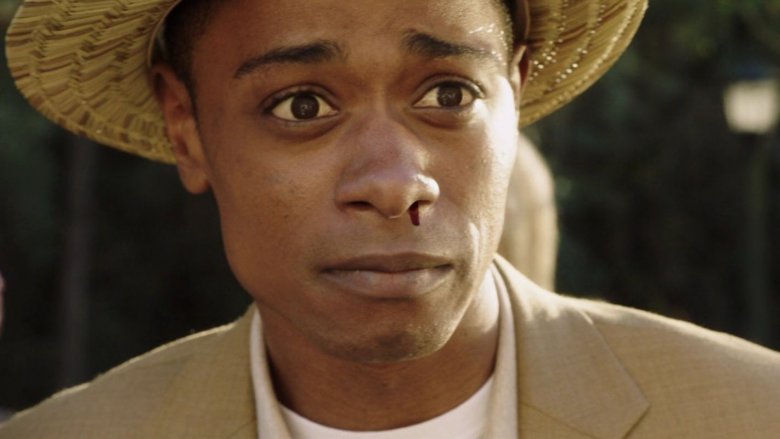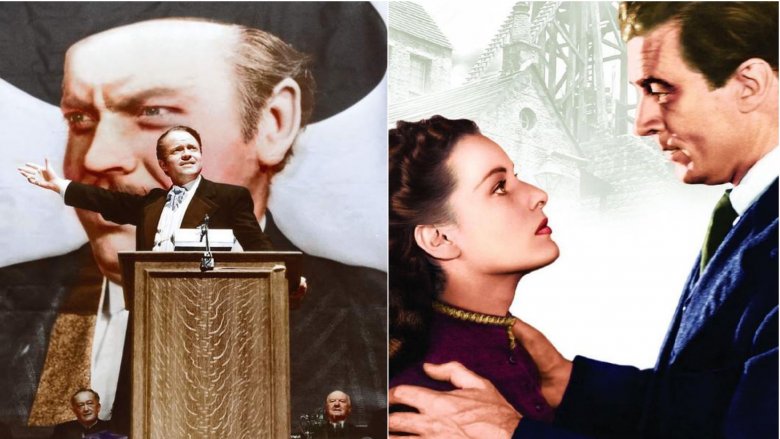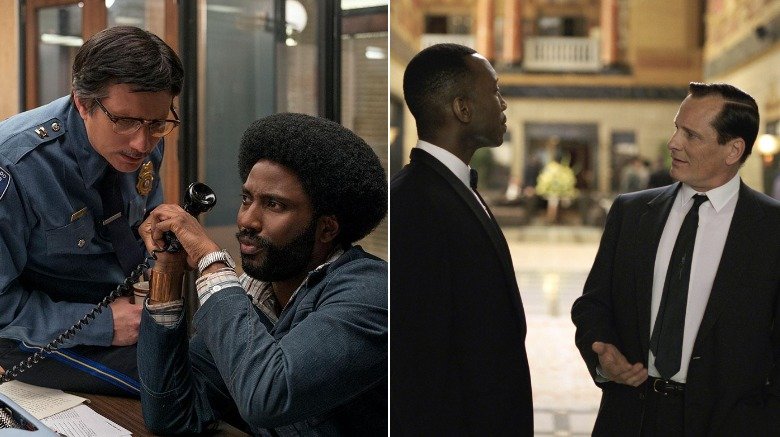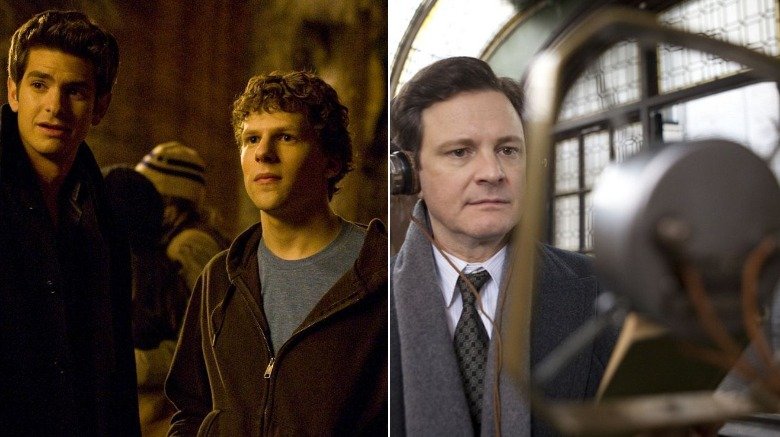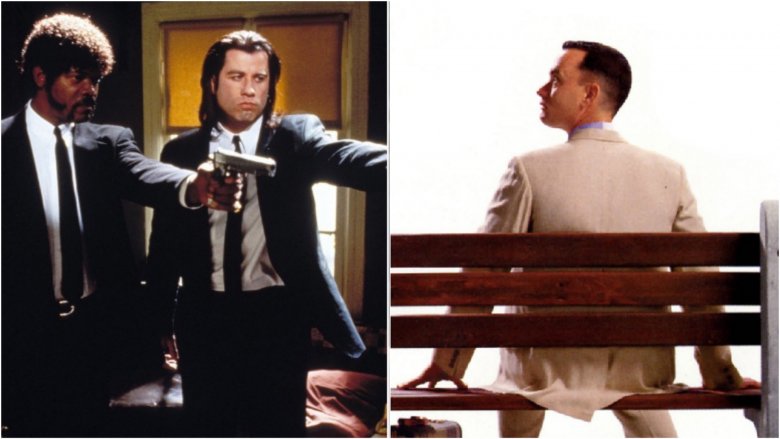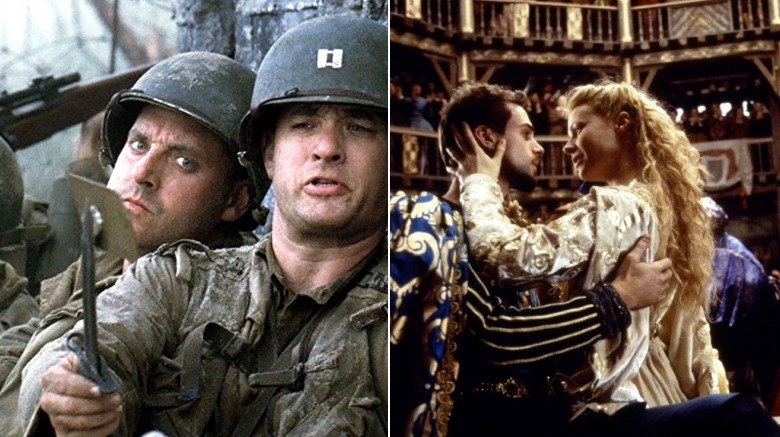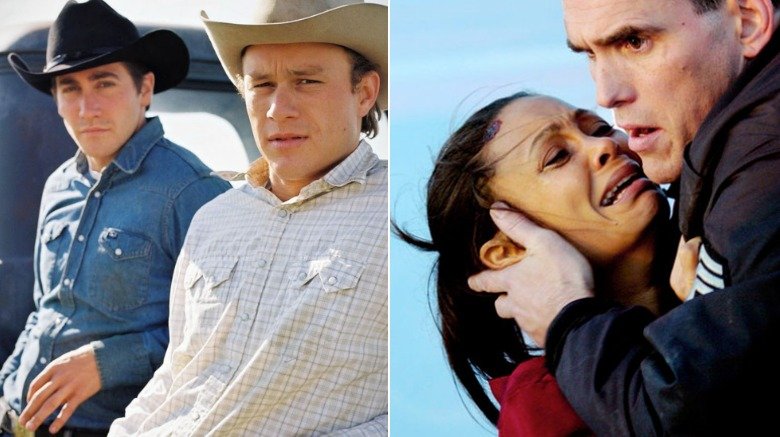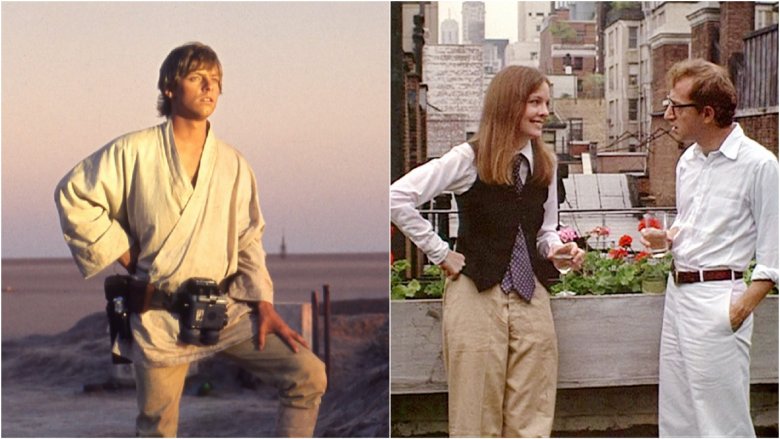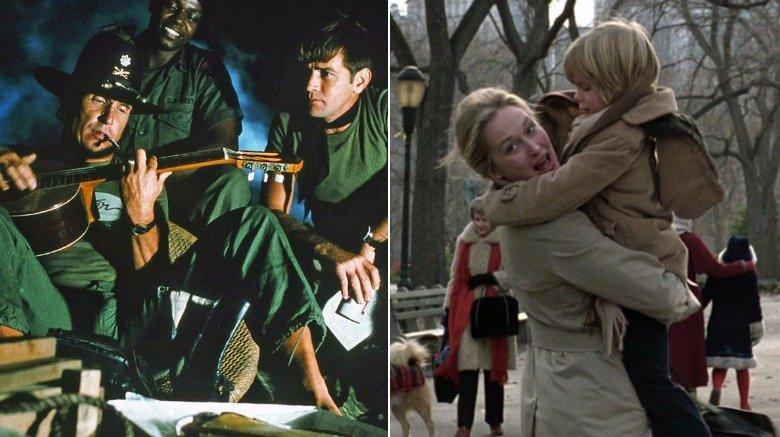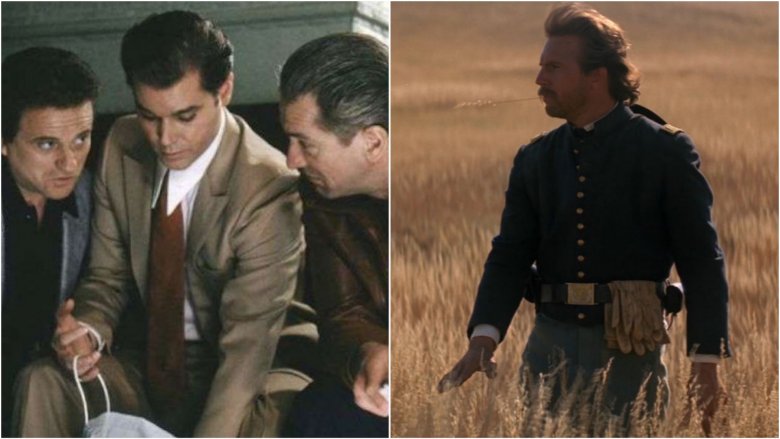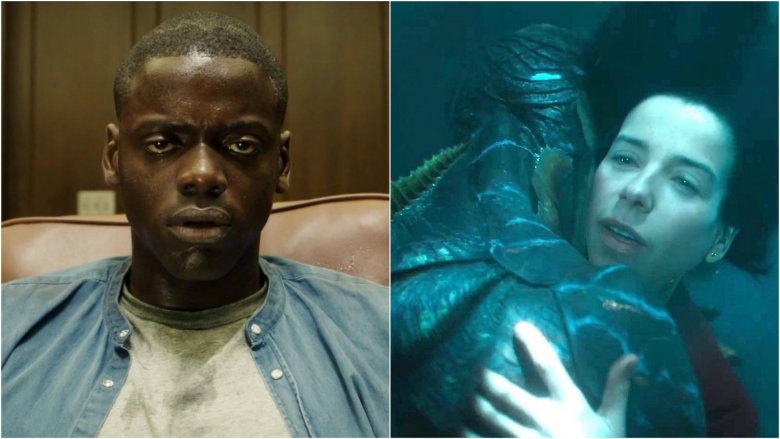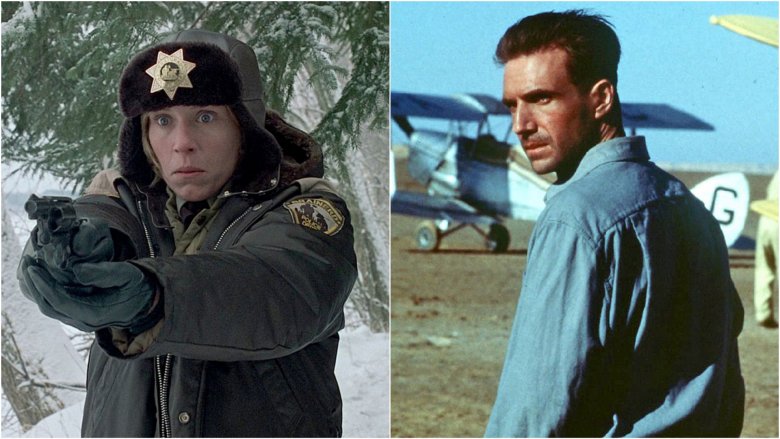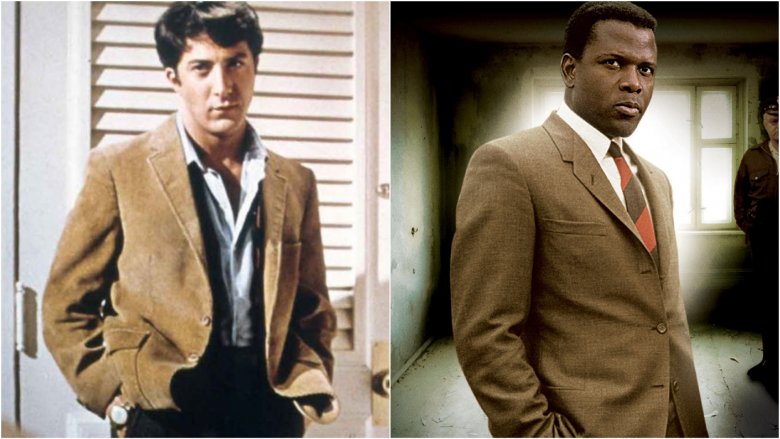The Best Movies That Didn't Win Best Picture
Ever since the first ceremony in 1929, the Academy Awards — or as most of us call them, the Oscars — have represented the absolute best in film, aiming to reward the most inventive, creative, and stunning artistic achievements throughout each year of cinema. An Oscar statuette is known worldwide as a mark of excellence, whether it belongs to an actor, director, cinematographer, or costume designer, and winning one of these highly coveted golden men can change the trajectory of a career or even a film's financial performance once a nomination or win has been secured.
Naturally, the biggest prize of the night is Best Picture — which, ever since the category expanded in 2008, has been judged by an entirely different style of ballot, attempting to choose a winner as carefully as possible. Despite that, there's always plenty of controversy when it comes to Best Picture, whether there's been meddling on behalf of a studio executive or viewers at home are simply unhappy with the decision — and even if a quality film walks away with the top prize, there are still films every year that were equally as good, if not better. Here are just a few great films that lost out on winning Best Picture.
Citizen Kane (lost to How Green Was My Valley)
Widely regarded as one of the best films of all time, Citizen Kane is a masterpiece from the mind of Orson Welles — and such an incredible accomplishment that it seems impossible that it was Welles' first feature. From its creative narrative structure to its direction and cinematography, the story recounts the life of hugely wealthy newspaper magnate Charles Foster Kane (based in part on William Randolph Hearst), told to a reporter while the titan is on his deathbed. From the gripping tragedies of Kane's life to the final reveal regarding "Rosebud," the film charts the rise and fall of a towering figure, keeping the audience enthralled along the way.
One might assume that Citizen Kane, whose very name is synonymous with "best picture," would have easily won the biggest award in film, but at the 14th annual Academy Awards, it was ultimately defeated by John Ford's How Green Was My Valley, in one of the most famous Oscar political spats in history — Welles was on bad terms with the Academy, which arguably contributed to him being denied his well-earned prize.
BlacKkKlansman (lost to Green Book)
2019 was one of the most diverse years in recent Oscar history, with powerful films like Black Panther, Roma, and BlacKkKlansman dominating awards buzz thanks to their strong messages, their casts, and their directors, any of whom could have made history by taking home the top prize. Veteran director Spike Lee, who helmed BlacKkKlansman (inspired by the explosive true story of a black police officer who successfully infiltrated the Ku Klux Klan) earned his first Best Director nomination for his intense, bold work, which closed with unforgettable, horrifying footage of the protests in Charlottesville that killed activist Heather Heyer. After famously losing an Oscar to Driving Miss Daisy (even though Lee's film Do The Right Thing wasn't even nominated that year, many fans still consider this a grave injustice), Lee looked like a likely victor come Oscar night.
However, even though Lee won his first ever competitive Oscar for BlacKkKlansman's adapted screenplay, he ultimately lost the Best Picture race to Green Book, a film about a white man tasked with driving a black musician through the segregated south that was widely deemed well-meaning yet offensive. Lee himself was obviously annoyed by the decision, and he wasn't alone, with many critics ranking Green Book as one of the worst Best Picture winners in recorded history. In a year that could have signaled real change within the Academy, the voters seemed to regress, disappointing fans and critics alike.
The Social Network (lost to The King's Speech)
Whether or not every word of it is entirely accurate, David Fincher's The Social Network, which dramatizes the story of how Facebook came into existence, is a gripping, tense film that is, at its essence, about the boundaries of friendship and the lengths people will go to in order to gain victory for themselves. Written by Aaron Sorkin and starring Jesse Eisenberg as Facebook creator Mark Zuckerberg alongside Andrew Garfield in a star-making turn as Zuckerberg's betrayed best friend and co-founder Eduardo Saverin, the film transitions between Zuckerberg and Saverin's origins at Harvard and their ensuing court battle over the rights to a now extremely successful Facebook (as well as Zuckerberg's other legal dispute with the Winklevoss twins, from whom Zuckerberg supposedly stole the idea), depicting Zuckerberg as a lonely yet power-hungry man who will stop at nothing to succeed.
Even though a "Facebook movie" initially didn't seem like an Oscar contender, The Social Network was nominated for several awards at the 83rd Academy Awards, even winning trophies for its screenplay, score, and editing, but it eventually lost Best Picture to Tom Hooper's The King's Speech. Though the winner was a fine film in its own right, The Social Network remains one of the best movies to lose out on the top prize, and is still regarded as one of the best films of the 21st century.
Pulp Fiction (lost to Forrest Gump)
Quentin Tarantino's time-twisting gangster epic Pulp Fiction, released in 1994, triumphed at that year's Cannes Film Festival (winning the prestigious Palme d'Or) and, upon its worldwide release, stunned audiences with its non-linear storytelling, exquisitely tight and hilarious script, and winning performances, especially from stars like John Travolta, Uma Thurman, and Samuel L. Jackson. Focusing on two contract killers whose lives end up intertwined with a number of characters and embroiled in several dicey situations, the film is notable for being one of the most important examples of independent cinema, cemented Tarantino as a director to watch, and is commonly ranked among the best films of all time.
Despite the overwhelming accolades for Pulp Fiction, the film only scored one Oscar (for Best Original Screenplay), even though it made it into the crowded race for Best Picture. In an even more frustrating turn of events, Tarantino's avant-garde achievement in filmmaking was felled by Forrest Gump, a saccharine and borderline offensive effort starring Tom Hanks from Robert Zemeckis that inserted its optimistic but challenged eponymous main character into various historical events. Rewarding an easy, unchallenging film rather than one that made audiences think or even squirm is a classic Oscars move, and one laid bare in this particular decision.
Saving Private Ryan (lost to Shakespeare in Love)
In 1999, it seemed all but certain that one film would triumph at the Academy Awards, and that film was Saving Private Ryan, Steven Spielberg's war epic that focused on the Normandy landings in World War II and a squad looking for a private who is the last remaining brother of four soldiers. Starring Tom Hanks as the squad's captain and Matt Damon as Private Ryan, this hit has been lauded in the years since its release as the best war film of all time, and has remained extremely popular, ultimately regarded as one of cinema's best films overall.
Spielberg won his second trophy for Best Director for the film, and it took home a handful of other awards, including ones for editing and cinematography, but in a truly shocking upset, Best Picture went to Shakespeare in Love, a romantic comedy dressed up in period costumes that was perfectly enjoyable but paled in comparison to Ryan in nearly every way. As it turned out, this outcome wasn't an upset at all; then-Academy member Harvey Weinstein, who was the co-chief of Miramax at the time, launched an incredibly aggressive Oscar campaign for Shakespeare, bullying and intimidating voters as well as launching an enormous press blitz. His plan worked, but in the years since, more details of his behavior have come to light, tarnishing Shakespeare in the process.
Brokeback Mountain (lost to Crash)
Brokeback Mountain, released in 2005, tells the story of a fraught and passionate love affair between two people at the wrong place and time. Ennis del Mar, played by the late Heath Ledger (who received an Oscar nomination for his role), and Jack Twist, played by Jake Gyllenhaal, are two Wyoming ranchers tasked with looking after a herd of sheep for a summer, and after a difficult beginning, the two begin a long-term relationship. Though they each marry (Michelle Williams and Anne Hathaway appear as their respective wives), their tale ultimately ends in tragedy when Jack is beaten to death in an act of gay bashing, leaving Ennis to mourn him for the rest of his life.
When it came time for the awards ceremony, viewers were stunned when Paul Haggis' Crash took the top prize (you can even see the surprise on presenter Jack Nicholson's face in footage showing him opening the envelope). Despite overwhelming praise for Brokeback Mountain's performances, direction, and script, Crash, a trite film that approached racism with all the sensitivity of a blunt axe, ended up taking home the trophy, leading to one of the most notorious upsets in Oscar history. The win was so ultimately controversial that in 2018, the Academy held a symbolic revote in which Brokeback Mountain finally took the top spot, hopefully putting to rest any lingering doubts about Lee's masterpiece as well as making it more than just the "gay cowboy movie."
Star Wars (lost to Annie Hall)
There is no doubt in anyone's mind that Star Wars, George Lucas' seminal 1977 film, is a staggering achievement in film as well as one of the biggest pop culture sensations in history, spawning the second-highest grossing film franchise of all time and becoming a part of the cultural lexicon almost immediately. The story of Luke Skywalker, a young man of no renown who becomes a part of the Rebel Alliance while embracing his skills as a fledgling Jedi, made household names out of stars like Mark Hamill (Skywalker), Harrison Ford (the dashing smuggler Han Solo), and Carrie Fisher (the strong-willed Princess Leia) as well as capturing the imagination of millions of people. Despite its fantastical and (literally) out of this world premise, the film is regarded as one of the most important ever made.
On Oscar night, even though Star Wars ultimately took home seven of the ten awards it was nominated for (winning essentially every technical category), it lost the biggest award of the night to Annie Hall, the doomed yet introspective love story that is largely regarded as one of Woody Allen's best films, if not the best overall. Though Annie Hall is certainly an important and excellent work of art in its own right and has carried on a legacy of its own, it's a shame that Star Wars was somehow seen as juvenile compared to films like Hall.
Apocalypse Now (lost to Kramer v. Kramer)
Stanley Kubrick's Apocalypse Now, based on the classic Joseph Conrad novel Heart of Darkness but set during the Vietnam War rather than the Congo (as in the original story), is not only commonly regarded as one of the best war films ever made, but one of the best films of all time, despite infamous on-set troubles and a grueling shooting process. Starring Martin Sheen as Captain Willard, the film chronicles Willard's journey down the Mekong River to locate and assassinate Colonel Kurtz (Marlon Brando), an Army officer who has been accused of insanity and murder. From famous lines to "I love the smell of napalm in the morning" to iconic scenes like the helicopter shot that utilizes Wagner's "Ride of the Valkyries," Apocalypse has left behind a lasting legacy, setting a new standard for war films and remaining one of Kubrick's indelible masterpieces.
Despite how famous the film has remained over the years, casual Oscar viewers might be surprised to learn that it didn't win Best Picture in 1980 — that accolade went to Kramer vs. Kramer, a divorce drama starring Dustin Hoffman and Meryl Streep that ultimately netted Streep her first ever statuette for Best Actress. Though Kramer vs. Kramer is decorated as well, its legacy isn't quite as powerful as Apocalypse Now, proving that a film doesn't always need to win Best Picture to remain important and influential.
Goodfellas (lost to Dances with Wolves)
One of the classic Mafia movies of the 20th century, Martin Scorsese's Goodfellas follows a mob associate named Henry Hill throughout his rise and fall, as well as his beleaguered family. The film is notable for the script process, in which lead actors Joe Pesci, Robert de Niro, and Ray Liotta did plenty of research on the real Henry Hill and spent rehearsals riffing and improvising, which resulted in Scorsese writing a revised script that incorporated the new material. Nominated for six Academy Awards including Best Picture, Director, Editing, Supporting Actor (for Joe Pesci), Adapted Screenplay, Editing, and Supporting Actress (for Lorraine Bracco), Pesci was ultimately the only Oscar winner for the film, which is still recognized as a crowning achievement.
All that still couldn't push Goodfellas over the edge for a Best Picture statuette, however, and to add insult to injury, it was defeated by the Kevin Costner vehicle Dances with Wolves, which has since been criticized as a textbook "white savior" story that places Costner directly in the middle of a Native American tribe, only to act as their leader. This upset is widely regarded as a wrongheaded decision by the Academy, especially considering the discrepancy in how each of these films has ultimately held up over the years.
Get Out (lost to The Shape of Water)
It seemed unlikely that Jordan Peele, one half of the sketch comedy duo Key & Peele, would eventually be minted as an Oscar winner, but his incisive writing throughout the pair's Comedy Central series should have been a pretty big indicator of his serious talent. His 2017 debut film Get Out, which he conceived, wrote, and directed, blew audiences and critics away and was a huge hit at the box office, telling the gripping and unsettling story of Chris (Daniel Kaluuya, who earned an Academy Award nomination), a black man who visits his girlfriend Rose's (Girls' Allison Williams) family for a weekend, coming face to face with her well-meaning but ultimately insidious parents, Missy (Catherine Keener) and Dean (Bradley Whitford). Utilizing a potent mix of humor, satire, social commentary, horror, and a deep and involved understanding of the black experience in America, Peele created a modern horror masterpiece that almost immediately entered the cultural lexicon.
Nominated for Best Picture, Director, and Actor (and winning Best Original Screenplay for Peele), the film was ultimately beaten by Guillermo del Toro's dark fantasy The Shape of Water. Though del Toro's film was certainly worthy of accolades, the Academy seriously missed an opportunity to acknowledge and reward Get Out, which is certain to remain in the collective consciousness for years to come.
Fargo (lost to The English Patient)
The directing duo Joel and Ethan Coen, known commonly as the Coen brothers, are regarded as two of the best directors working in Hollywood, with a slate of impressive films that includes No Country for Old Men, O Brother Where Art Thou?, The Big Lebowski, and the remake of True Grit. However, one of their most famous films is still Fargo, the dark Minnesota comedy about police chief Marge Gunderson (Frances McDormand) investigating a series of bizarre roadside murders amidst a ransom plot run by a down-on-his-luck car salesman (William H. Macy). The film is still consistently ranked on best-of lists and is held up as one of the pair's best, as well as winning an Academy Award for Frances McDormand and the award for Best Original Screenplay. Its influence is still felt today — FX's anthology series Fargo, inspired by the movie, has received nearly as much critical acclaim as its inspiration.
With all that in mind, it seems surprising that Fargo doesn't have a Best Picture statue, but it ultimately lost to The English Patient, which, despite critical acclaim of its own, has been mocked for being overly long and serious since its release. In fact, at this point, most casual viewers probably associate it with Seinfeld, which made it the butt of a running joke for an entire episode.
The Graduate (lost to In The Heat of the Night)
Regarded as a classic of American film, Mike Nichols' masterpiece The Graduate remains beloved (despite some differing opinions on the characters over the years), marking a breakthrough role for star Dustin Hoffman as Benjamin Braddock, the titular aimless graduate who must weigh his attraction to the older Mrs. Robinson (Anne Bancroft) against his love for her daughter Elaine (Katherine Ross). Thanks to its sharp script, pitch-perfect direction by Nichols (who earned an Oscar for Best Director), and an inspired soundtrack, The Graduate is still a classic film by any right, despite not winning the trophy for Best Picture.
In the end, it was bested by In the Heat of the Night, which is a stunning artistic achievement in its own right, telling the story of a black detective from Philadelphia (Sidney Poitier) who must investigate a small town murder. Though this film certainly deserves its Best Picture statue, the continued cultural importance of The Graduate and its legacy can't be overlooked, making it one of the best movies not to take home the Oscar.
